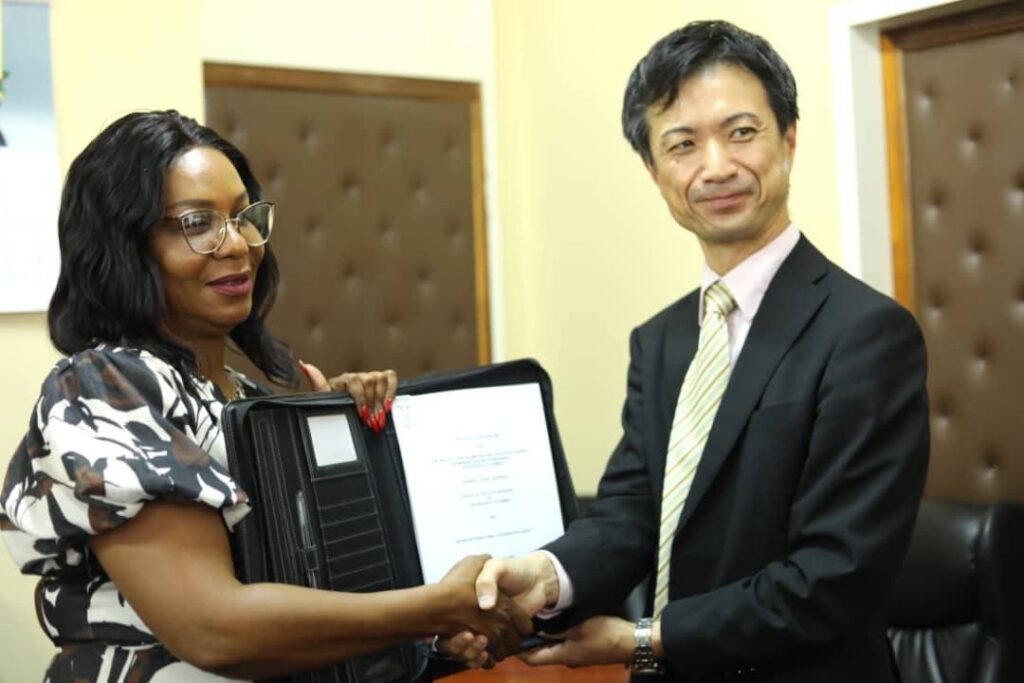Zambia and JICA Sign MoU to Promote Inclusive Development in Resettlement Schemes
The Government of Zambia and the Japan International Cooperation Agency (JICA) have signed a Memorandum of Understanding (MOU) to implement the Hope II Project in the Maheba and Mayukwayukwa resettlement schemes, aiming to foster inclusive development and empower communities to contribute meaningfully to Zambia’s economic growth.
Permanent Secretary for Resettlement in the Office of the Vice President, Mavis Nkomeshya, who signed on behalf of the Zambian government, emphasized the project’s holistic approach.
She highlighted that the initiative focuses on ensuring access to services and livelihoods for all community members, promoting participation in local decision-making, and recognizing refugees and former refugees as equal partners in development.
Nkomeshya underscored that the Hope II Project is more than a development intervention; it reflects the government’s commitment to inclusivity, trust, and shared responsibility.
She also noted the unique nature of Maheba and Mayukwayukwa as spaces where former refugees, settlers, and host communities coexist, and stressed the potential for these communities to become models of social cohesion, resilience, and shared prosperity.
The project aligns with Zambia’s Eighth National Development Plan, particularly the pillars focused on economic transformation and job creation.
JICA’s Chief Representative, Jotaro Tateyama, signed on behalf of JICA and provided key details about the project. Worth $2.8 million and set to be implemented over three years, Hope II builds on the successes of the first phase (2020-2025).
The initial phase achieved significant milestones including community participation, local housing and agriculture cluster allocations, and the introduction of market-oriented agriculture to improve livelihoods.
The new phase will address policy gaps and improve coordination among stakeholders, with interventions targeting livelihood improvements through both agricultural and non-agricultural solutions.
Refugees, former refugees, settlers, and host communities will receive essential knowledge, skills, resources, and opportunities necessary for successful integration and to contribute to regional and national economic development.
The Hope II Project stands as a critical step in promoting productive, integrated, and inclusive communities in Zambia’s resettlement schemes, demonstrating a strong partnership between the Zambian government and JICA in driving sustainable development.



